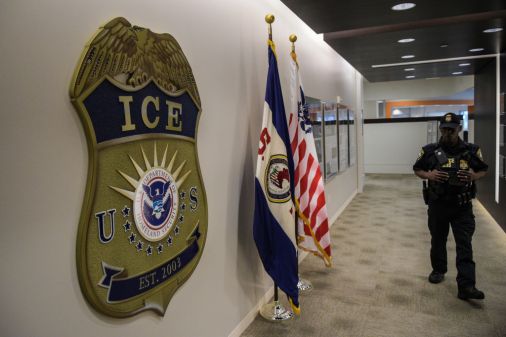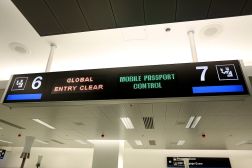ACLU wants Secret Service and Coast Guard records included in its phone tracking suit

The American Civil Liberties Union seeks a court order requiring the Department of Homeland Security to refer its request for records on the warrantless purchase of cellphone location data to the Secret Service and Coast Guard.
DHS waited more than 14 months to reject the ACLU’s request, and the organization is arguing that resubmission to the individual agencies would cause a “pointless delay” in its lawsuit.
The ACLU sued DHS, Immigration and Customs Enforcement, and Customs and Border Protection in December over their secret use of a Venntel database for immigration enforcement and potentially more, and now it seems other agencies within the department may be involved.
Since the start of the lawsuit, ICE has proposed a records processing schedule of 500 pages a month — an “unreasonable” pace given the “significant” public interest in the case, according to the ACLU’s response filed April 23.
The DHS Office of Inspector General is now investigating use of the database, and legislation has been introduced that would prohibit warrantless access of such data — necessitating a records processing schedule of at least 1,000 pages a month, the ACLU continued.
“CBP and ICE are producing records on an ongoing basis, but the court has not yet ruled on the disputes the parties presented to it in April,” Nathan Freed Wessler, deputy director of the ACLU’s Speech, Privacy, and Technology Project told FedScoop. “The public interest in the information we are seeking is as strong as ever, with Congress now considering the Fourth Amendment is Not For Sale Act and federal agencies continuing to aggressively purchase access to this highly sensitive information about people’s movements and activities.”
ICE’s current pace would take a year and a half to complete, and that doesn’t include the time the ACLU will have to spend challenging the adequacy of the records returned and agency withholdings and redactions.
The ACLU said the end of May was a reasonable timeframe for the DHS Office of Procurement Operations to provide 22 pages of relevant records and May 20 a fair deadline for the Office of Civil Rights and Civil Liberties, Science and Technology Directorate, Privacy Office, and Office of the General Counsel to complete their searches and assess the volume of relevant records. The organization proposed they submit a joint letter to the U.S. District Court setting a deadline of May 27 to process the records.
DHS did not respond to a request for comment by time of publication.
Democratic Senate aides initially uncovered DHS agencies’ warrantless use of the cell-phone location database during a series of summer oversight calls, but their follow-up requests for more information were ignored — prompting the ACLU’s lawsuit.
Washington, D.C.-based mobile analytics company Venntel collects the data from apps and sells it to government customers, though its full client list hasn’t been disclosed.
The IRS revealed on a June oversight call that its Criminal Investigation unit subscribed to Venntel’s database between 2017 and 2018. Senators subsequently pressured the agency’s inspector general to investigate, though J. Russell George only promised to report back “to the extent allowable under the law.”
CBP’s Venntel database subscription cost half-a-million dollars.
At issue is the Supreme Court’s 2018 Carpenter v. United States decision, which found collection of significant quantities of historical phone location data constitutes a search requiring a warrant under the Fourth Amendment. The ACLU wants to know if immigration authorities are paying for access to databases to circumvent that ruling.
The lawsuit requests copies of contracts, policies and procedures for data use, communications with companies and the related legal analyses.






